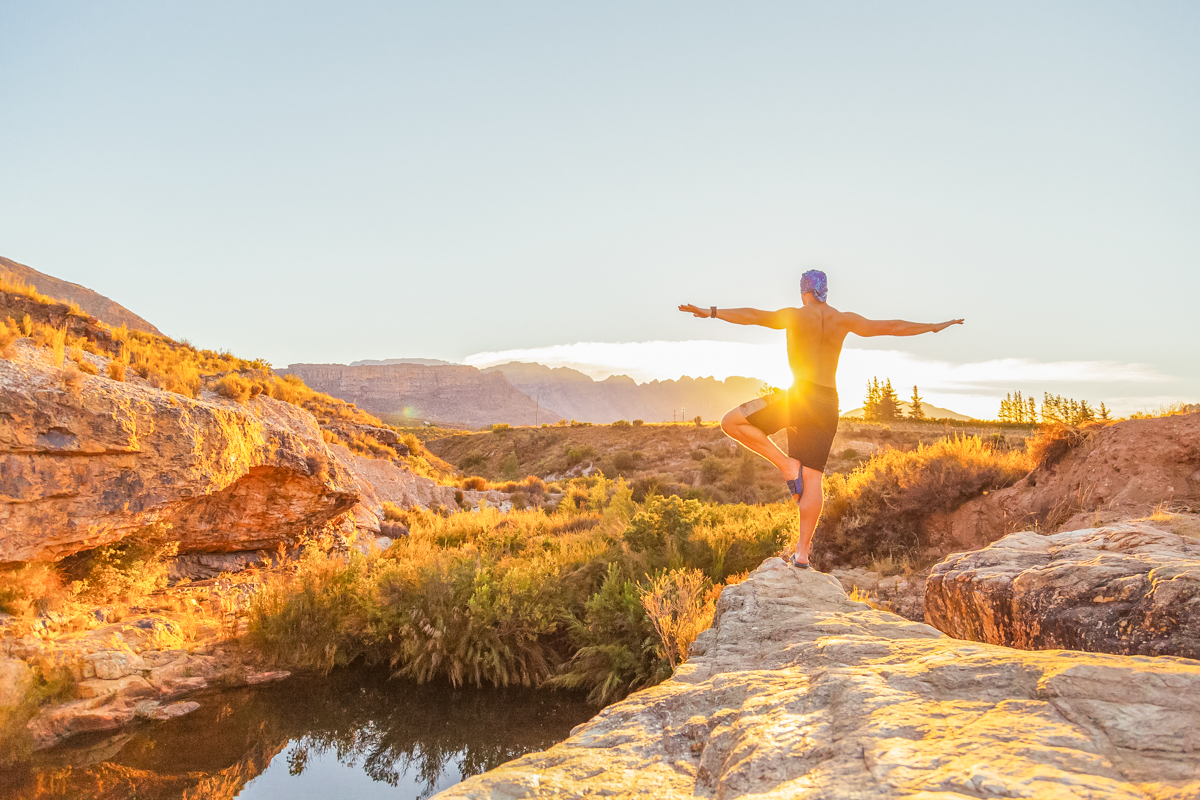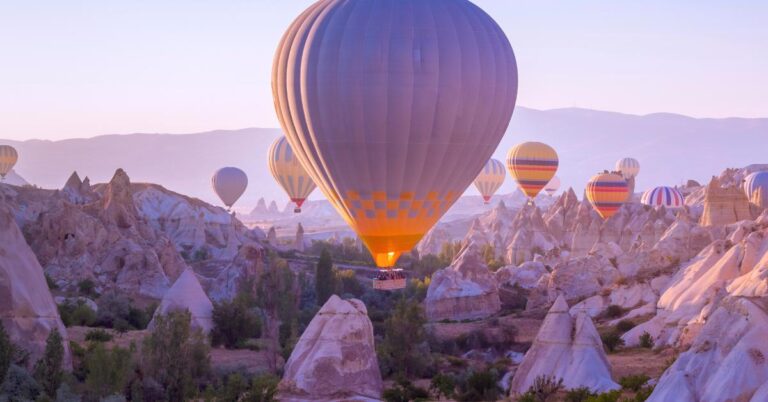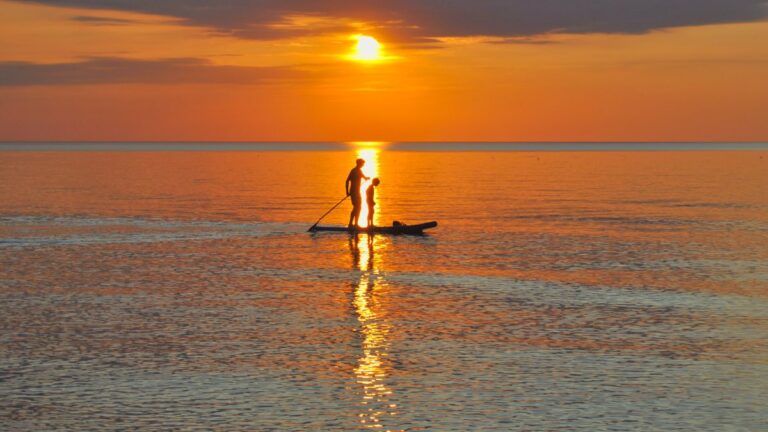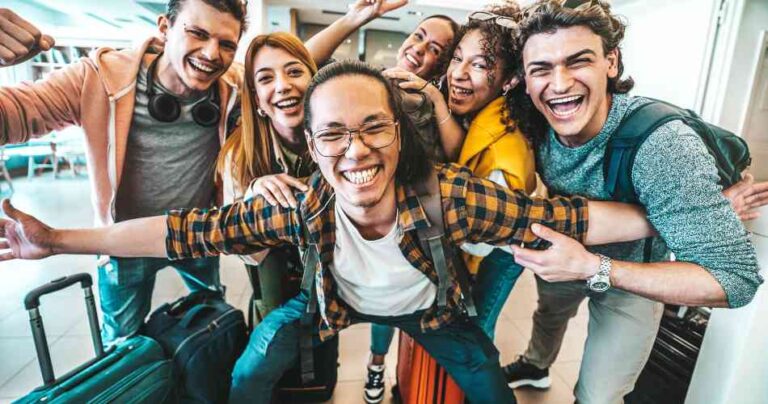One of the biggest parts to having mindful travels is to be present in the moment.
Let amazing travel moments happen naturally as you let go of strict agendas, doing things for social media, and false ideas of having the ‘perfect’ trip.
Being mindful has a lot to do with awareness and how you react to certain situations.
If you miss a flight or forget to book accommodation, how do you handle the situation.
Do you see it objectively and accept that these things happen?
How To Have Mindful Travels
Mindful travel means that you are intentional about your experiences.
It means traveling conscientiously so you can hit all three of these: personal growth & inward development, understanding the world with empathy and contributing to it positively.
Doing the right thing – adhering to rules or guidelines of a place or culture to be a responsible traveler does not mean you will have a boring experience.
I cringe every time I see travelers take photos close to the edge of the Cliffs of Moher (a famous tourist site along the Wild Atlantic Way in Ireland) because tourists consistently die there from not following the guidelines.
Overtourism is a serious issue.
I am hoping that the more we talk about it and demand a change, the travel industry will start to realize that it is not okay to continue down this destructive path.
We need to be holding them and ourselves to a higher standard than before.
I hope that one day responsible travel will be just travel.
6 Silly Mistakes Keeping You From Mindful Travels

Disclaimer: This site contains affiliate links that will cost you nothing extra but offer me a little commission for any purchases made. These help me continue to offer helpful tips. Thank you so much for your support.
#1 Being Clueless About Other Cultures
Say no to disregarding local culture and history when leaving home.
No matter whether it is an hour drive away or a 16 hour plane journey, you will always encounter something different, whether it be customs, food, laws, etc.
This is just how vast and unique our world is. Forgetting that others exist seems to be catching.
It is extremely prevalent among people living in what are deemed as ‘first world’ countries.
We tend to think the world revolves around us and are therefore clueless about even the basics of respecting other cultures.
So what can be done to combat this?
Change certainly will not happen overnight, but a step in the right direction is preparation.
Try to prepare for the inevitable culture shock by learning beforehand.
Free resources online are so great to prepare you for mindful travels, though it is important to make sure the advice comes from a credible source since stereotypes can come through in different mediums.
I would suggest checking out a few of these books.
Figuring Foreigners Out: Understanding The World’s Cultures
Foreign to Familiar: A Guide to Understanding Hot – And Cold – Climate Cultures
There is also a mobile application specifically that could be useful, Culutremee.

#2 Expecting Your Trip To Go Smoothly
I am so guilty of this since I am a perfectionist. Say no to this mindset because it is toxic.
It seriously does not matter how many bragable travel goals you have achieved or if you are starting a gap year.
There is bound to be mistakes and mishaps, whether it be something you do or circumstances out of your control.
Instead, ditch the mind frame that everything has to be perfect and go according to plan.
Adopt the idea that things could get messed up and that is okay. Embrace it.
With that being said, I do not think you should throw caution to the wind.
Cover yourself in case something goes wrong with travel insurance.
Now, if you are one of the people that claim it is not a necessity, think again!
It is by far one of the most important purchases for your trip.
And if it is a matter of cost, well… if you can not afford it, you probably should not be traveling.
I always use SafetyWing because they have wide coverage and are the most affordable.
#3 Eating In The Wrong Places
Food is at the centre of every society.
It is something we all have in common – we need it to live.
Joining together with others to eat means that for that meal, you share sustenance and community.
Some of the world’s biggest decisions were made over sharing a meal – food brings us together in a particular way that nothing else does.
I hope this stresses how food can be essential for mindful travels since it helps to learn about a culture, the past and present.

Say no to eating at the first place you see.
Chances are that if you are in a touristy area, you will not find very many authentic places to dine.
Instead, try to find local eats on Tripadvisor or go on a local food tour.
Discover how you can connect with locals by visiting local markets together, attending a local taught cooking class, or sharing a meal in a local home.
If you are interested in finding the most authentic food experiences, read my guide here.
#4 Having A ‘Speak English’ Mindset
Through colonization and globalization, English has become the dominant language of the western, developed world.
Many people that grow up as native English speakers tend to not learn other languages.
As you can probably imagine or know first hand, this can cause some issues when traveling.
The problem relates back to #1. Citizens in developed countries are more likely to have a privileged mindset.
This mindset can lead to some cringe worthy situations when traveling.
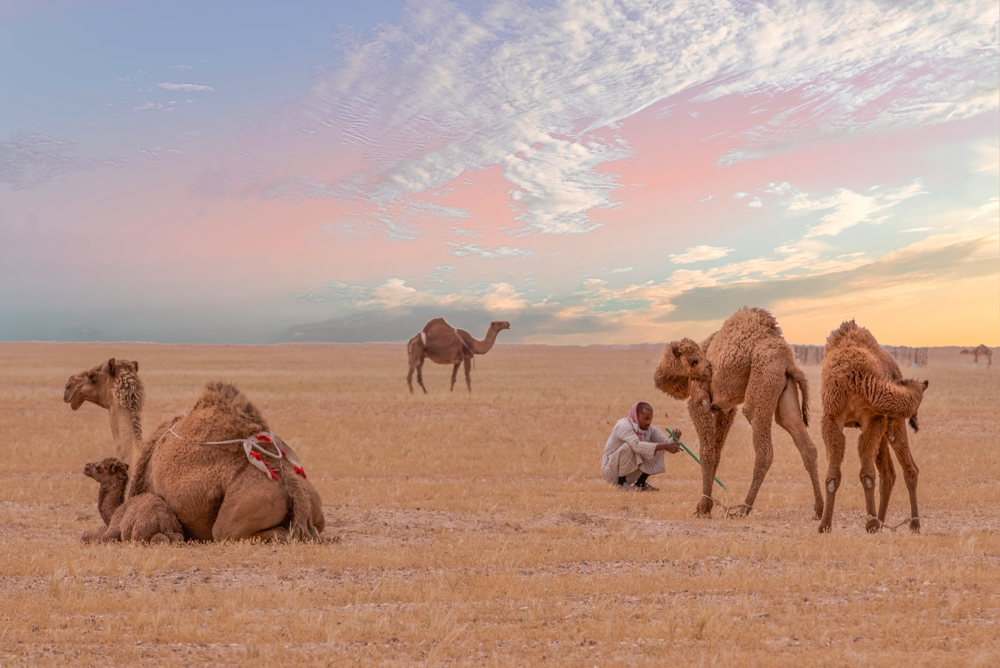
Some examples are…
Having an expectation that English will be spoken to you no matter where you go
Getting frustrated that local people have not learned English
Looking down on a country, culture, or people group for not knowing English or speaking poorly
Countless times during my travels, I have seen other travelers do these and it genuinely hurts my heart.
Do not get me wrong – I am not blameless by any means either in this.
So what can you do? Doing research will help you not be surprised if English is not widely used.
I would suggest learning some of the native language before leaving for your trip.
Make sure to verbally practice common phrases that you might use when there. Saying them out loud is really important!!
Practicing will help you feel more confident for the first times you need to say something after you arrive.
Pro tip: Usually, if you learn a small bit of the language, local people will really appreciate your effort, resulting in them responding back with appreciation and kindness.
Grab these books to help increase your fluency in other languages!
How to Really Learn a Language
Fluent Forever: How to Learn Any Language Fast and Never Forget It
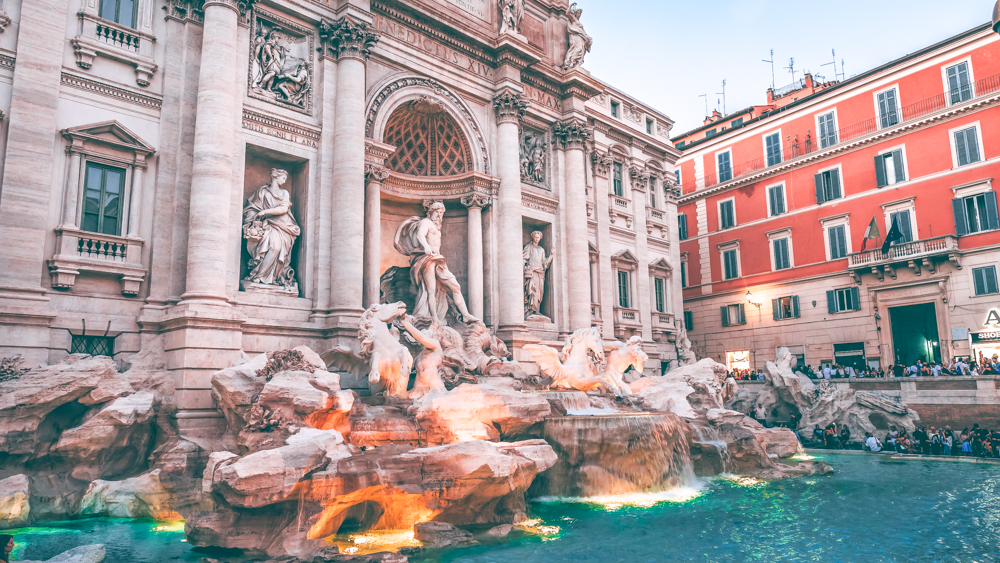
#5 Unconsciously Wasting Time
If you have read anything else on my website, you will know I absolutely love to slow travel.
The whole essence of traveling slowly is to be mindful about your time so you can stop going so fast to have authentic experiences.
There is nothing wrong with having a scratch off world map or a bucket list, but so often people will obsess over checking everything off their list or scratching off as many countries as they can.
I am not afraid to admit, that was totally me before too
After having that mindset for a while, I got burned out and was not having meaningful experiences.
What I propose is this. Instead of trying to fit in as many sights and countries as possible, slow down a bit to really get to know a place.
Be mindful and find out what makes it tick. Meet locals and make new friends. See the places that guidebooks fail to mention.
For more reading, check out these amazing slow travel books.
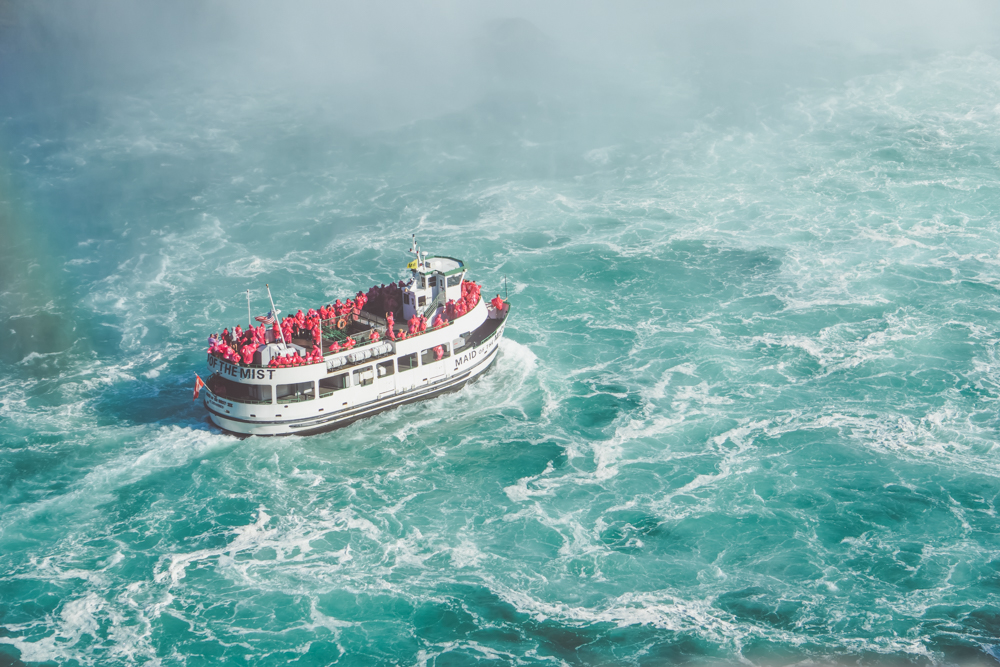
#6 Signing Up For Group Tours
This is a strong statement, I know! Unless circumstances really do not allow you, I think you should avoid group tours from your mindful travels.
Most of the time they do not allow for deep, cultural experiences.
Group tours are normally run by larger tourist companies that do not invest back into the economy or employ locals.
They often are too structured, overpriced and have an air of being impersonal.
I do not know about you but I feel like herded cattle when I am on a group tour!
Here are some examples of certain circumstances I mentioned above.
Group tours can often provide a sense of security for those that are first time travelers or necessary for those with travel anxiety or mobility issues.
Group tours can sometimes be the only way to see certain sites or countries. In remote countries, it could be difficult without public transport.
This was the case in Iceland for me since I could not rent a car.
I had to take a few bus tours in order to see anything outside of the capital.
Another example is that to visit Iran as an American, I would have to have a group tour for my entire trip.
GET YOUR FREE SLOW TRAVEL BUCKET LIST
Join my exclusive email list to receive 23 unique experiences to inspire slow & meaningful travel!
Thank you!
I have successfully sent your slow travel bucket list.
Can't find it? Make sure to check your spam folder!
When possible, reconsider booking a group tour, I think you will have a much more mindful travel experience.
If you do go ahead with a tour, try to choose a locally owned and operated company that hires locals.
Try to find one that practices sustainable tourism and is a bit more intimate with smaller numbers!
Love This Post? Pin It For Later!


